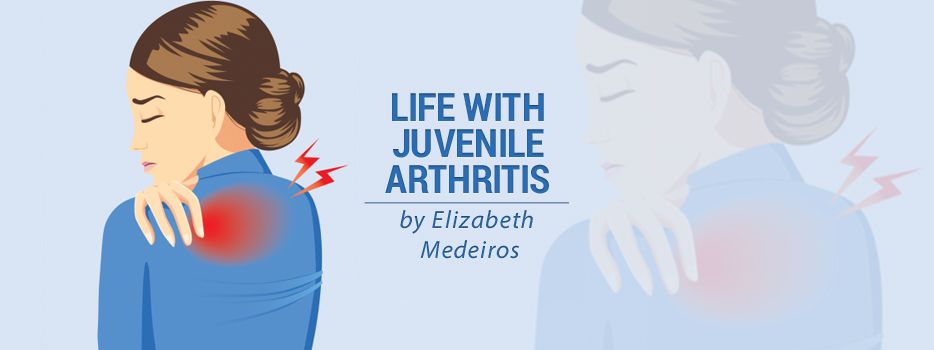My first juvenile arthritis flare was so intense I was hospitalized for a couple days. My pain was so severe that no one could touch me. Thankfully, I don’t remember much about my time in inpatient care.
I became skittish after leaving the hospital. Even when I felt better, the memory of being hospitalized still lingered in my head. I was stiff and tense, and terrified I’d have to go back.
When I eventually did have to return, I was nervous, and I acted out. I wouldn’t lend my arm for a blood test, because I remembered how much it had hurt when I was sick and dehydrated.
Coping with chronic care
Not many children will be hospitalized due to JA these days, but it still happens, especially with kids with juvenile systemic arthritis or those who require surgery. But even without overnight stays, kids with JA may feel anxious about seeing their doctors or visiting the hospital.
It’s common to be nervous about going to the hospital, especially after a previous negative experience. And that experience doesn’t have to be physically painful to warrant a reluctance to return. For example, a teenager may refuse to go because appointments make her feel like she has no control in her life.
Turn to an expert
A visit to the doctor or the hospital can be negative for a variety of reasons. I found it hard to force myself to go after I had bad experiences, even as an adult. Children of all ages can benefit from therapy to work on their anxiety or other negative feelings. Having a physiatrist or a counselor to talk to about how you’re feeling is so beneficial.
A therapist can help your family get to the source of your child’s fear and design a plan to assist. Sometimes, that fear isn’t as simple as being afraid of the pain from shots.
For example, your child may be anxious because they feel like they have no control over their body when they visit the doctor. They may need a grounding technique to help them gain back some control. Or, your teen may not feel like the doctor is listening to their concerns and is brushing off their pain.
While therapy is the most effective way to help your child, there are other things you can do to help. For example, offering positive reinforcement after appointments can be extremely useful. Even when I wasn’t thrilled to go to the hospital, I could usually cope because I got to hang out with my mum for the day, and sometimes we’d go to lunch.
My favorite resource ever
Sometimes, having a familiar story or character can help younger children talk through their feelings and cope with their experiences. There are plenty of resources for children to learn about doctors and hospitals, from “Richard Scarry’s Busy, Busy World” to “Clifford.” You can even find more specialized books for dealing with chronic illness. But the program I highly recommend is “Sesame Street Home Video Visits The Hospital,” which can be found on YouTube.
This TV special is particularly helpful if your child has gone through the experience of being hospitalized due to illness rather than surgery. The episode follows Big Bird after he falls ill and has to be admitted. It introduces children to a hospital routine and talks about the big emotions that come with it.
Although I watched this special as an adult while researching this column, I couldn’t help but sympathize with poor Big Bird. As he cried about how unfair it was and how he wanted to go home, I teared up. I remember feeling the same things.
Takeaway
My biggest piece of advice is to try to understand things from your child’s point of view. It might even be helpful to watch the “Sesame Street” episode yourself, even if your kids are older. I know it sounds silly, but the writers didn’t create this special to show kids what a stethoscope is — they wrote it so that families could watch together and understand their child’s emotional reactions.
Of course, talk with your child. Try to talk through what they’re feeling and what their concerns are. Even if you can’t do anything to erase their fears and anxiety, being heard will help your child. Everyone wants to know their feelings are valid.
***
Note: Juvenile Arthritis News is strictly a news and information website about the disease. It does not provide medical advice, diagnosis, or treatment. This content is not intended to be a substitute for professional medical advice, diagnosis, or treatment. Always seek the advice of your physician or other qualified health provider with any questions you may have regarding a medical condition. Never disregard professional medical advice or delay in seeking it because of something you have read on this website. The opinions expressed in this column are not those of Juvenile Arthritis News, or its parent company, BioNews, and are intended to spark discussion about issues pertaining to juvenile arthritis.

